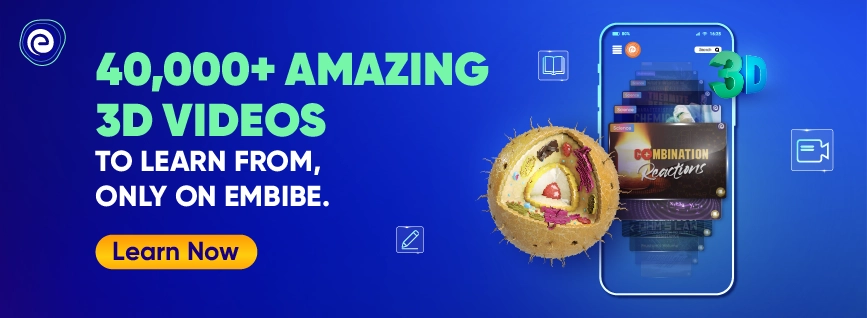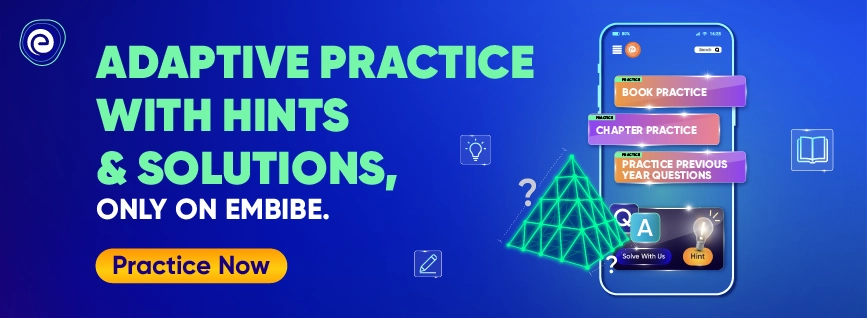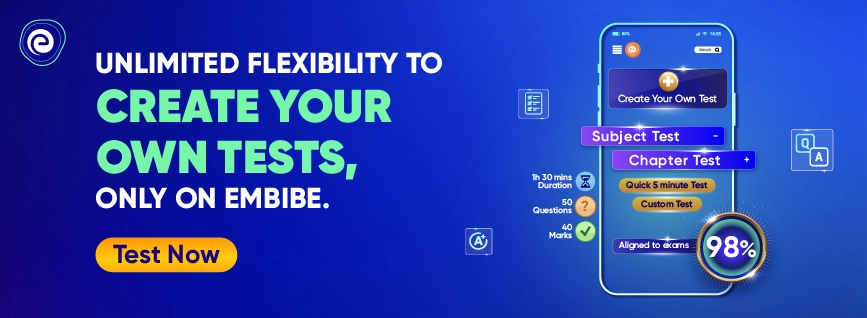- Written by nikhil
- Last Modified on 8-03-2023
About Chattisgarh Class 7 Exam 2023
The Chhattisgarh Board of Secondary Education (CGBSE) is responsible for conducting CGBSE Class 7 Exams. CGSBE was founded on September 20, 2001, and is in charge of expanding and developing secondary education in the state. Since 2002, the Chhattisgarh Education Board has been in control of administering exams on its own. Students can enroll in private and public institutions that are members of the Chhattisgarh board of school education.
Class 7 is an important class, given the concepts that students learn in this particular class and the role these concepts plays in higher classes. Hence, CGBSE carefully designs the syllabus to ensure that the students get the most out of their class 7th learning. Read this article for complete details on CGBSE Class 7 Exam and syllabus.
Chhattisgarh Class 7 Exam Summary 2023
The CGBSE is responsible for promoting and expanding secondary education in the state, as well as granting school affiliations, and proposing curriculum, syllabus, and books. The board regulates and frames the syllabus, exam pattern and exam blueprint for all the classes. For Class 7, the exams are conducted within the school itself and the school authorities ensure the smooth conduction of the examination. Before further details, given below are some of the important details that students must go through:
| Name of the Exam |
Chhattisgarh Class 7th Examination |
| Conducting Body |
Chhattisgarh Board of Secondary Education |
| Frequency of Conduct |
Yearly |
| Exam Level |
7th class |
| Mode of Application |
Offline |
| Exam Duration |
2 Hours |
Chhattisgarh Board Class 7 Official Website Link
https://cgbse.nic.in/
Syllabus for CGBSE Class 7
The syllabus is an integral part of any exam preparation. Students must start their exam preparation by going through the syllabus properly. This will help them to have a proper understanding of the curriculum and help them to see which chapters they need to prepare more. For the reference of students, below we have provided the Chhattisgarh Board Class 7 syllabus:
CGBSE Class 7 Mathematics Syllabus
Mathematics is an important subject and students must study thoroughly in order to score well. To make thins smoother for students, we have provided the Chhattisgarh Board Class 7 Maths syllabus below. Students can refer to this syllabus and accordingly start studying for their exams.
| Chapter Number |
Chapter Name |
| 1 |
Numbers: Revision |
| 2 |
Rational Numbers |
| 3 |
Properties of a Triangle |
| 4 |
Equations |
| 5 |
Use of Brackets |
| 6 |
Exponents |
| 7 |
Construction of Parallel Lines & Triangles |
| 8 |
Congruence |
| 9 |
Operations on Algebraic Expressions |
| 10 |
Graph |
| 11 |
Decimal representations of Rational Numbers and Operations |
| 12 |
The Angle, pair of Straight lines & Transversals |
| 13 |
Quadrilateral |
| 14 |
Proportion |
| 15 |
Area |
| 16 |
Percentage |
| 17 |
Statistics |
| 18 |
Symmetry |
| 19 |
Vedic Ganit |
CGBSE Class 7 Science Syllabus
In order to score well in the Chhattisgarh Board Class 7 Science exam, students must start their exam preparation by thoroughly analyzing the syllabus and studying accordingly. Following are all the chapters covered in CGBSE class 7th Science syllabus:
| Chapter Number |
Chapter Name |
| 1 |
Life on Earth |
| 2 |
Water |
| 3 |
Structure of Matter |
| 4 |
Acids, Bases and Salts |
| 5 |
Measurement |
| 6 |
Structural Organization in Living Organisms |
| 7 |
Heat and Temperature |
| 8 |
Transfer of Heat |
| 9 |
Nutrition in Living Organisms |
| 10 |
Respiration in Living Organisms |
| 11 |
Fibre to Fabric: Animal Fibre |
| 12 |
Reflection of Light |
| 13 |
Transportation in Living Organisms |
| 14 |
Excretion in Living Organisms |
| 15 |
Static Electricity |
| 16 |
Control and Coordination in Living Organisms |
| 17 |
Skeleton, Joints & Muscles |
| 18 |
Movement and Locomotion in Living Organisms |
| 19 |
Soil |
| 20 |
Reproduction in Living Organisms |
| 21 |
Electric Current and its Effects |
CGBSE Class 7 Social Science Syllabus
The CGBSE Social Science syllabus for class 7 contains 24 chapters and is divided into three sections: History, Geography, and Civics. Students must prepare all the chapters properly in order to get a good score. Given below is the CGBSE Class 7 Social Science syllabus:
| Subject |
Chapter Number |
Chapter Name |
|
History |
1 |
The Rise of Small Kingdom-States |
| 2 |
Changing Patterns of Life (Life of India from the Year 650 to 1200) |
| 3 |
The establishment of the Delhi Sultanate (1206 to 1290) |
| 4 |
Expansion of Delhi Sultanate |
| 5 |
The Life of the People during the Sultanate Era |
| 6 |
The Foundation of the Mughal Empire (From Babar to Akbar-1526 to 1605) |
| 7 |
The Period of Revolts and Rebellions |
| 8 |
Life in Mughal Times |
|
Civics |
1 |
Country and State |
| 2 |
The State Government (Part I) |
| 3 |
The State Government (Part II) |
| 4 |
Industry-An Introduction |
| 5 |
Small and Large Industries of Chhattisgarh |
| 6 |
General Consciousness Human Rights |
| 7 |
Society and Role of Women |
| 8 |
Media and Advertisement |
| 9 |
Trans Gender/Third Gender |
|
Geography |
1 |
Environment |
| 2 |
Inside Our Earth |
| 3 |
Our Changing Earth |
| 4 |
Air |
| 5 |
Water |
| 6 |
Natural Vegetation and Wildlife |
| 7 |
Human-Environment Settlement, Transport and Communication |
| 8 |
Human-Environment Interactions-The Tropical and Subtropical Region |
| 9 |
Life in the Temperate Grasslands |
| 10 |
Life in the Deserts |
CGBSE Class 7 English Syllabus
The first step while preparing for Chhattisgarh Board Class 7 English exam is to go through the syllabus and analyze it. Based on the syllabus, students must plan their study routine and start their studies. Given below is the Chhattisgarh Board Class 7 English syllabus:
| Chapter Number |
Chapter Name |
| 1 |
Hobble-Wobble |
| 2 |
The Missing Whistle |
| 3 |
Hard Care |
| 4 |
Hard to Believe |
| 5 |
Alice In Wonderland-II |
| 6 |
Unity is Strength |
| 7 |
Jimmy Jet and His TV Set |
| 8 |
A Serious Talk |
| 9 |
Have A Cup of Nice Tea |
| 10 |
Our Little River |
| 11 |
Grandchildren by Surprise |
| 12 |
The Chinese-Our Neighbour |
| 13 |
Only God can Make a Tree |
| 14 |
The Angle of Peace |
| 15 |
The Glorious Whitewasher |
| 16 |
Halfway Down |
| 17 |
Making Best out of Waste, Her Forte |
| 18 |
Dear Diary |
| 19 |
From Tomorrow on |
| 20 |
Unfriendly Nature |
| 21 |
The Great Sculler |
Study Plan to Maximise Score
Preparation Tips
Getting good grades in class 7 requires hard work and thorough preparation. Below we have provided some of the preparation tips to assist CGBSE class 7 students with their exam preparation:
- Prepare a timetable, give adequate time to each chapter, and allot additional time to topics/subjects that you may find challenging.
- Make an effort to write and practice each topic thoroughly. The written notes you make while studying will also assist you in revision.
- It’s vital to remember that cramming or skimming through topics won’t assist you in subjects like Science and Math.
- Always study in a quiet, distraction-environment so that you may focus on your studies without interruption.
- Choose your study hours based on your own preferences, such as when you feel most refreshed and energised to study or what time of day works best for you.
- You must set aside enough time to go over what you’ve learned and make sure you understand it.
- Mugging at the last minute isn’t going to help much. The most efficient method to achieve this is to revise each subject again and again until you have a complete understanding of it.
- It is not a good idea to study for lengthy periods. Take short breaks of 10-15 minutes every 2 hours.
- Small breaks in between study sessions can help you tremendously. When studying or revising for the test or before the exam, try not to stress yourself. Take a walk, listen to music, watch television, or do anything else that will help you relax.
Exam Taking Strategy
- Arrive early to the exam hall to avoid the final minute rush and give yourself time to relax and focus on the exam.
- Pay attention to all instructions given by the examiner. Carefully read the guidelines on the question paper before writing.
- Read all of the questions and the options before answering.
- Divide your time in a way that you can answer all the questions in the allotted time and do not miss out on the questions.
- Answer all of the questions that you are sure of only then go on to questions you are unsure about.
Detailed Study plan
Below we have provided a detailed study plan for CGBSE Class 7 exams:
- Begin your day with meditation for 15-20 minutes. Yoga and exercise can assist you in maintaining your fitness and health.
- Stick to a daily plan that offers equal importance to all subjects.
- Mathematics demands at least 1 hour of daily practice because it is a high-scoring subject.
- All other subjects should be studied for at least 30 minutes each day.
- As you know, there are three sections in Social Science: History, Geography, and Civics.
For your convenience, we have included some subject-specific advice below:
- English: When studying for CGBSE Class 7, focus on grammar and writing because these are the parts where they lose the most marks. Analyze previous year’s papers to get an idea about the questions asked in the exams. The subject requires students to practice meticulously.
- Mathematics: Concentrate on learning concepts. Mathematics is one of the important subjects to learn and master. They should begin practicing problems with all of the essential study materials to ace this subject.
- Science: This is one of the most significant subjects, especially if you want to work in the field of Science. Even students who do not want to major in science should have a good grasp of the topics.
Frequently Asked Questions
Given below are some of the frequently asked qusetions on Chhattisgarh Board Class 7 exams:
Q. Is there any board exam for Chhattisgarh Board Class 7?
Ans. No, students are evaluated based on their performance in school-level exams and CCE (Continuous Comprehensive Evaluation).
Q. Are there other exams for kids in CGBSE Class 7?
Ans. Yes, in addition to school-level exams, students can take a variety of competitive exams. Olympiad, Indian School Talent Search Exam (ISTSE), and other competitive exams.
Q. What books should I read to prepare for the CGBSE Class 7 exams?
Ans. The students must use the textbooks prescribed by the board. They can also use Embibe to get the finest book recommendations for the CGBSE class 7 examinations.
Q. Are there any CGBSE Class 7 mock tests or practice questions available?
Ans. Yes, you may use Embibe to take practice questions and mock tests of CGBSE Class 7. We also provide study materials that have been chosen by subject matter experts.
Q. What are some of the top CGBSE Class 7 preparation tips?
Ans. Covering the complete syllabus and practising the questions for a comprehensive knowledge of the ideas are two of the greatest preparation suggestions for students. Students can also take Embibe’s mock tests of CGBSE Class 7 to enhance their preparation.
Dos and Donts
List of Educational Institutions
List of Schools
Given below are some of the top recommendations for the list of Chhattisgarh Board schools in Chhattisgarh.
| School Name |
Location |
| Government High School |
Gondpara Abhanpur |
| Government Higher Secondary School |
Bilaspur |
| Government High School |
Pacheda |
| Government High School |
Chhatra |
| Government High School |
Baktara |
| Government High School |
Gullu |
| Government High School |
Bhandarpuri |
| Government High School |
Sakari Korasi |
| Government High School |
Dewartilda |
| Government Boys Higher Secondary School |
Raipur |
To know more about schools in Chhattisgarh, click here.
List of Future Exams
In today's competitive world, exams are one way to bring out students' knowledge, interests, capacity, and potential. On the basis of Continuous Comprehensive Evaluation (CCE), students are promoted from grade 6 to grade 7. There are a number of national and international competitive exams held each year in addition to this school-level exam. These examinations increase students' confidence and passion for their classes.
Some of the competitive exams for students studying in classes 8, 9, and 10 are as follows:
- National Talent Search Examination or NTSE
Subjects: Science, Mathematics, Social Science, Mental Ability and General Awareness
Conducting Body: National Council of Educational Research and Training (NCERT)
- National Level Science Talent Search Exam or NLSTSE
Subjects: Maths, Physics, Chemistry, Biology, General Questions
Conducting Body: Unified Council
- Indian National Olympiad (INO)
The five stages of the exam are:
- Stage I: National Standard Examination (NSE)
- Stage II: Indian National Olympiad
- Stage III: Orientation cum Selection Camp (OCSC)
- Stage IV: Pre-departure Training Camp (PDT)
- Stage V: Participation in International Olympiad
Subjects: Physics, Chemistry, Biology, Astronomy and Junior Science
Conducting Body: Jointly conducted by Indian Association of Physics Teachers (IAPT) & Homi Bhabha Centre for Science Education (HBCSE)
- Science Olympiad Foundation
Subjects: Science, mathematics, computer education, English, sports and professional courses
Conducting Body: Science Olympiad Foundation
Subject: Computer, Mathematics, Science and English Language
Conducted by: Silverzone Foundation.
- National Interactive Maths Olympiad or NIMO
Subjects: Math
Conducting Body: Eduheal Foundation
- National Biotechnology Olympiad or NBO
Subjects: Math
Conducting Body: Eduheal foundation
- Asset (Assessment of Scholastic Skills Through Educational Testing)
Subjects: English, Mathematics, and Science (Social Studies and Hindi – Optional)
Conducting Body: Educational Initiatives Pvt. Ltd.














































